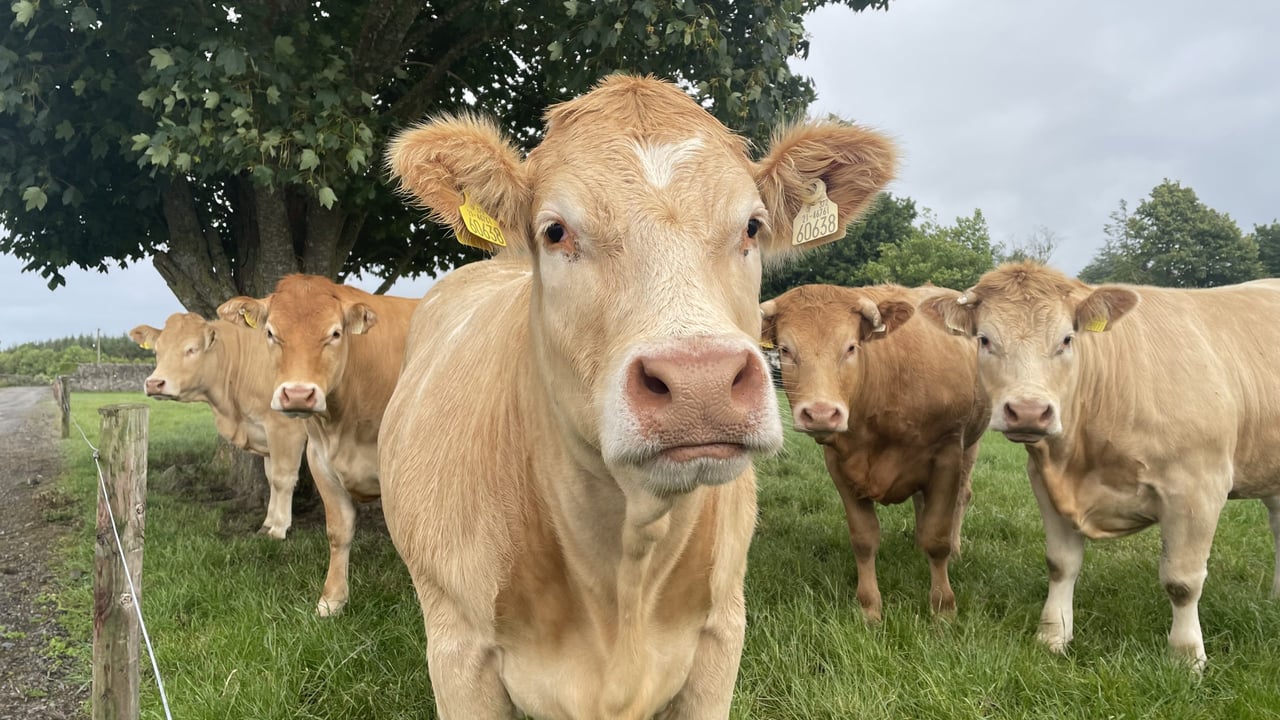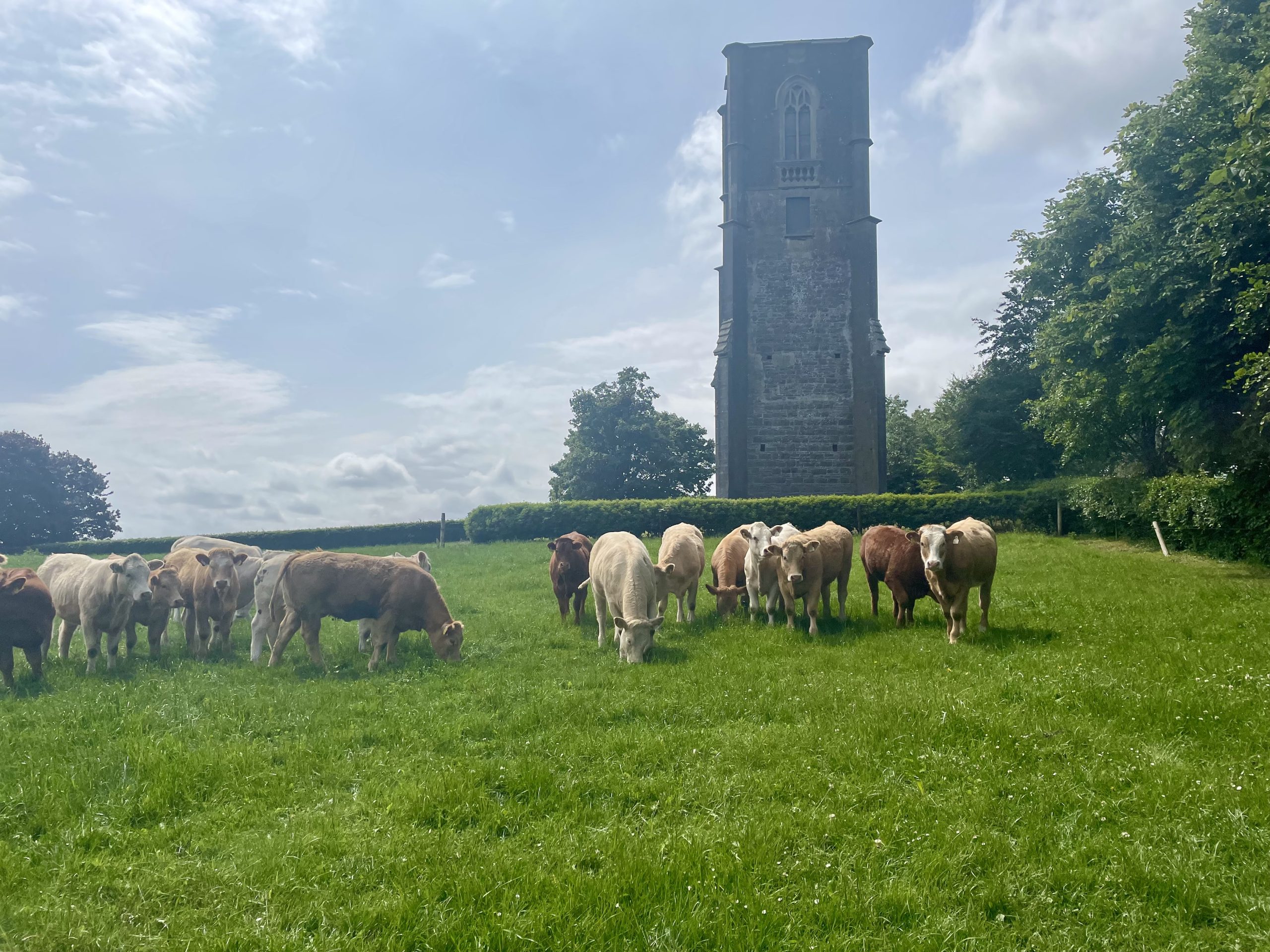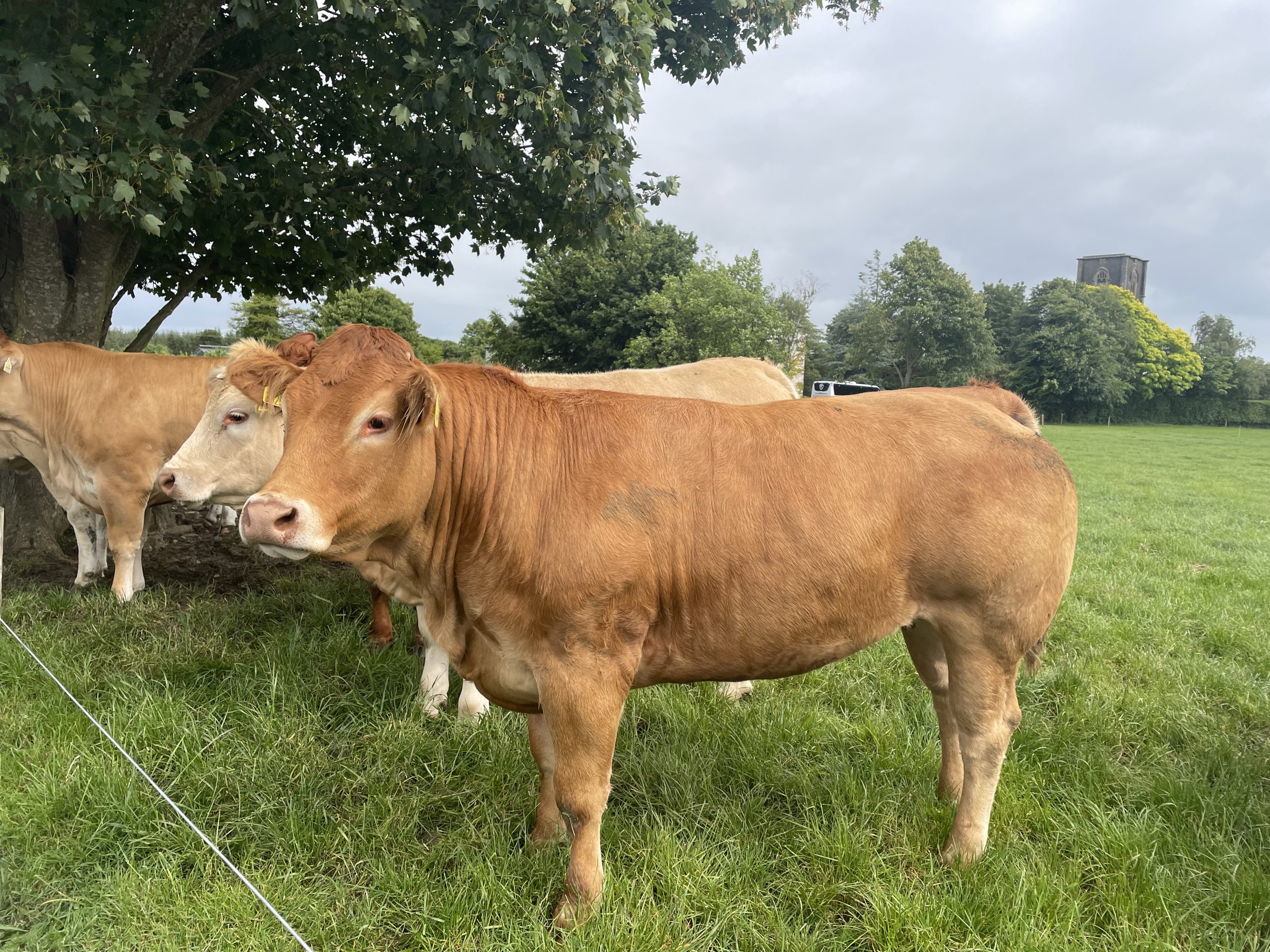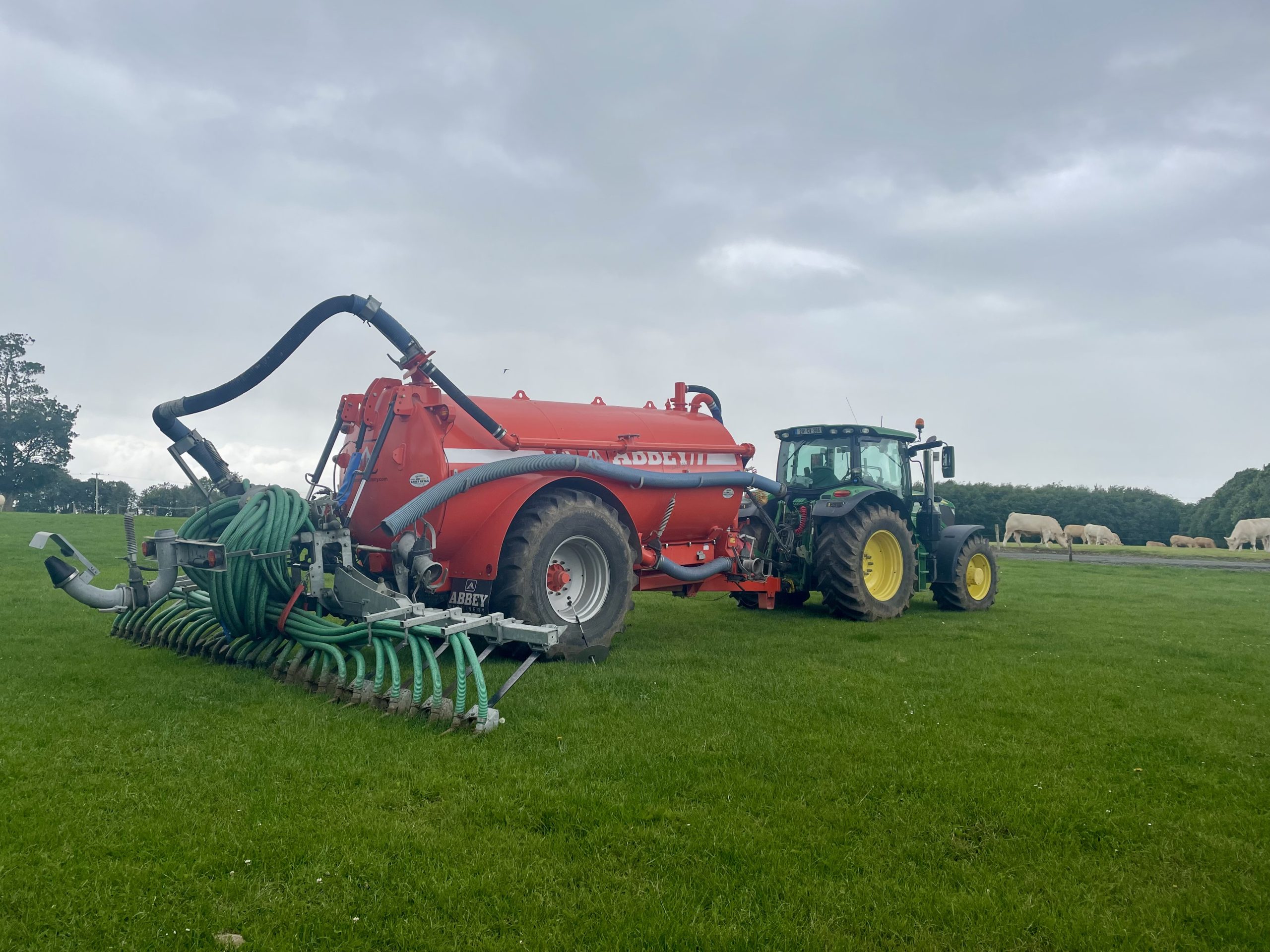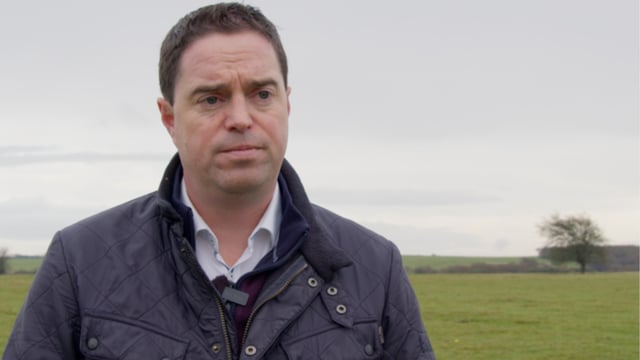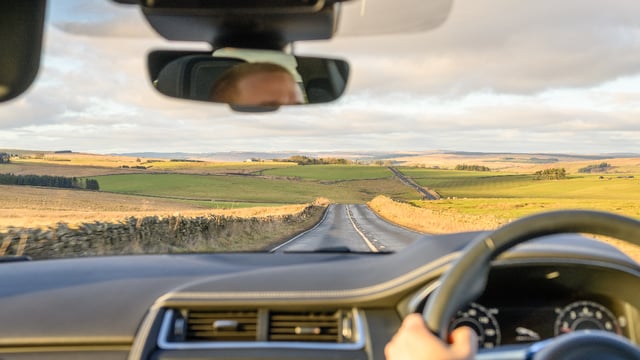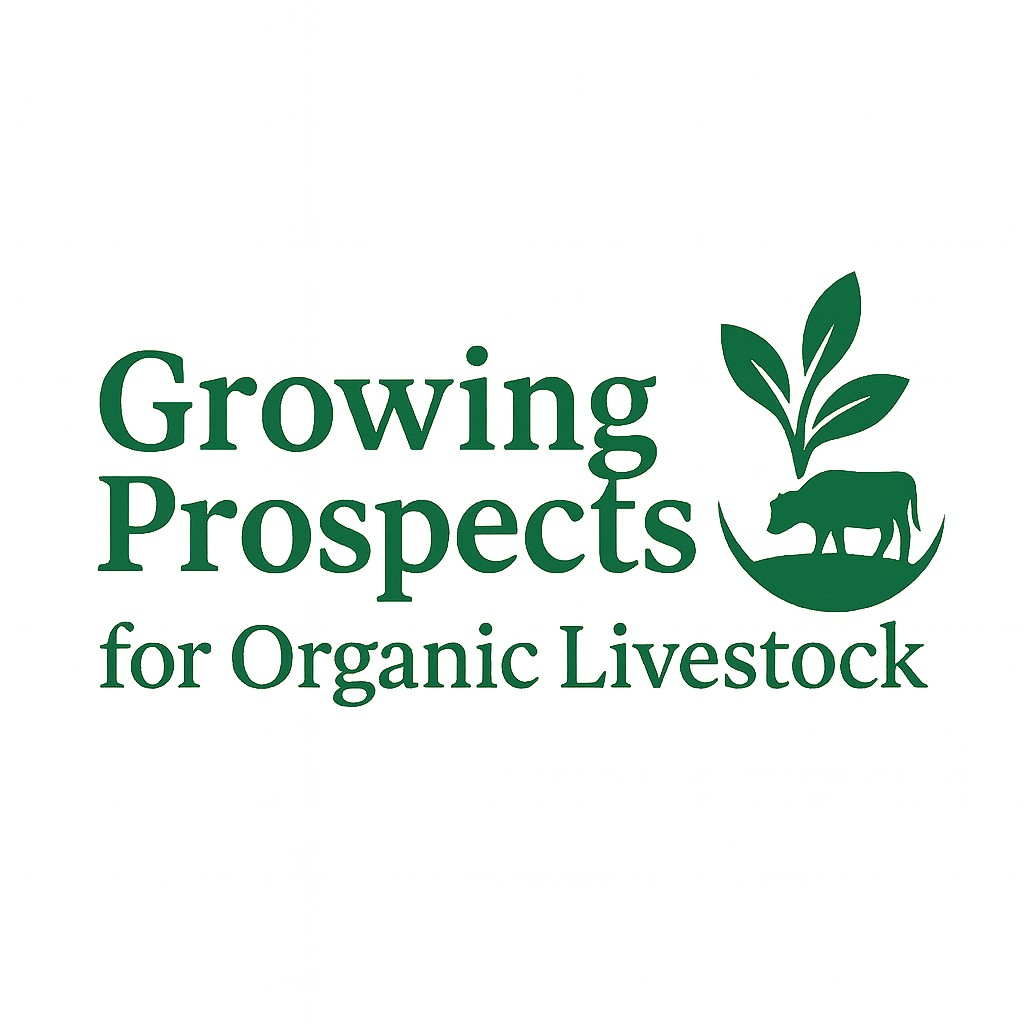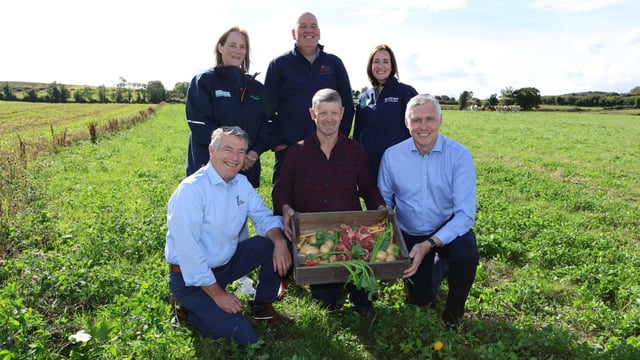Behind the Big Mac: Kilkenny farmer supplying beef for McDonald's
In the first of a two-part series, Agriland is examining the importance of Irish beef in the McDonald's supply chain.
For John Phelan being among the many Irish farmers supplying beef for McDonald's is very much a family business.
John farms alongside his brother, Tadgh and father, Tim at Blanchville in Co. Kilkenny where they run a specialist finishing system of around 300 continental cross heifers on a 60ha block.
There is also a tillage enterprise consisting of 400ha, which John has in partnership with his cousin.
All of the cattle on the Phelan farm are produced for Dawn Meats, some of which are used to supply beef to McDonald's.
Dawn Meats has been a supplier of beef to McDonald’s since 1986, producing beef patties for its restaurants across Ireland, the UK and Europe.
McDonald's sources around 40,000t of beef annually from Ireland, along with dairy products, pork and eggs.
As one in five hamburgers sold in Europe is of Irish origin, John Phelan told Agriland that McDonald's is a "huge customer" for Irish beef.
The finishing system on the Phelan farm involves heifers being bought in at between 10-14 months, weighing around 300-400kg.
While John tries to source animals as locally as possible, an increase in dairy farming means he has had to go further afield to secure the stock
Phelan acknowledged it has been an expensive year to buy in cattle, but noted that they also had expensive cattle to sell.
"We had that power to go out and purchase animals, but the suckler farmers of Ireland also need that margin.
"I don't mind giving it to the suckler farmers if they produce the good quality stock and try keep them in business," he said.
John explained to Agriland the cattle are finished off grass or out of the shed. They are aiming for a carcass weight of between 360 to 400kg, with an ideal of 380kg.
"We get paid on weight and we also get paid on confirmation. When we sit down with our factory at the start of the year, which is Dawn Meats, these are the animals that they are looking for.
"There's no point in me having something to sell that they don't want. So we went away from steers and bulls and concentrated on heifers," he said.
The farmer said that they favour heifers as they can finish quicker, do not get too heavy and can be easier to source.
John said that the emphasis on the farm is to grow as much and as good quality grass as possible.
Around 12.5t of dry matter per hectare was produced in 2024, with similar levels currently expected for this year, despite the dry spell earlier in the year.
The farm operates a rotational grazing system, with the various batches of heifers given a fresh paddock every day or two.
Substantial investment in farm infrastructure, including around 4km of farm roads, helps to manage the labour involved.
One of the more unique features of the Phelan farm is that all of the feed given to the animals during housing is produced on the farm.
This includes grass silage, straw and cereal grains produced on the arable farm.
Last August, Dawn Meats introduced a new sustainability programme for Irish beef farmers, which is being supported and co-funded by McDonald’s.
The ACTIVATE farm sustainability programme, with a total investment of €4.4 million over three years, pays farmers for successfully implementing sustainability actions and reducing emissions.
"This partnership aims to encourage farmers to adopt sustainable practices," Caroline Lewis, sustainable sourcing consultant at McDonald's UK and Ireland, said.
"To date, we've got 50 beef farmers involved in the ACTIVATE programme and we're looking to continue to grow that over the next couple of years.
"Farmers want to feel like they're doing something good for the environment but they're also receiving a benefit for it.
"I think it's a really great way to show them some gratitude for the hard work that they're doing to protect the environment," she added.
The ACTIVATE initiative aligns with Dawn Meats’ Plan Four Zero and McDonald’s Plan for Change sustainability strategies.
"We've got broader sustainability goals across McDonald's UK and Ireland, one of those goals being net zero [emissions] by 2040.
"We're focusing on projects both on farm, but also at restaurant and office level as well," Caroline Lewis said.
John Phelan, who is taking part in the programme, has adopted a range of sustainability practices on his farm.
This includes using protected urea, grassland measuring, low emission slurry spreading (LESS) and reseeding with clover in the sward. Around 10% of the farm is reseeded each year.
The farm is also part of the Bord Bia Sustainable Beef and Lamb Quality Assurance Scheme (SBLAS).
John said that the annual audits provide a measure for the carbon footprint on the farm and how that compares to other enterprises.
Stay tuned to Agriland for the second part of the 'Behind the Big Mac' series where we visit Dawn Meats' dedicated facility for McDonald's in Co. Waterford.

